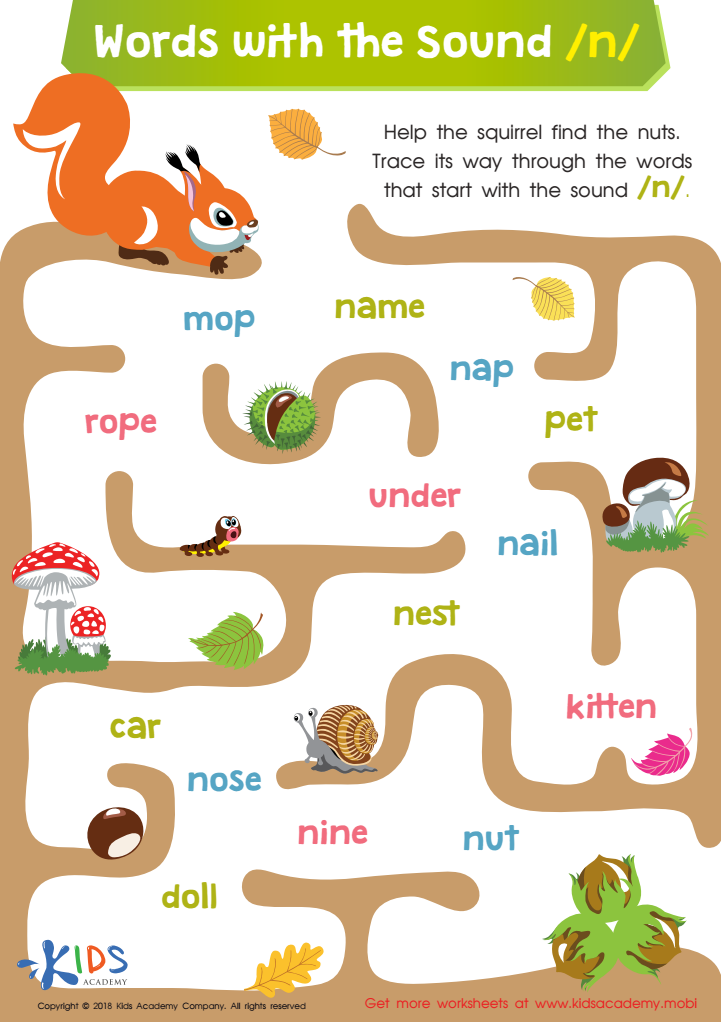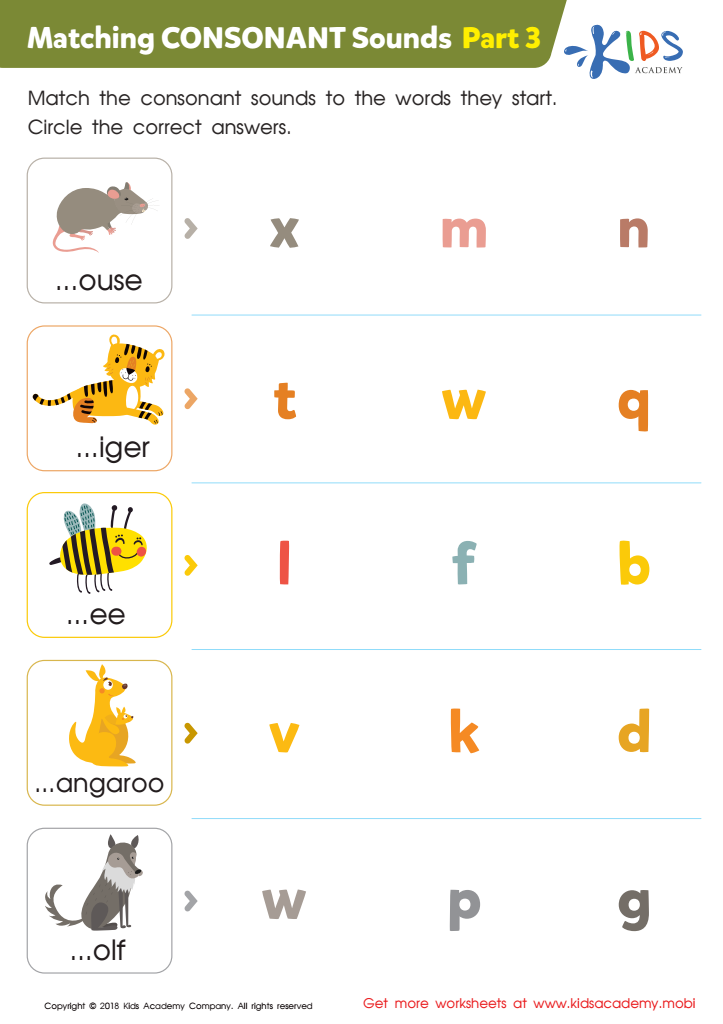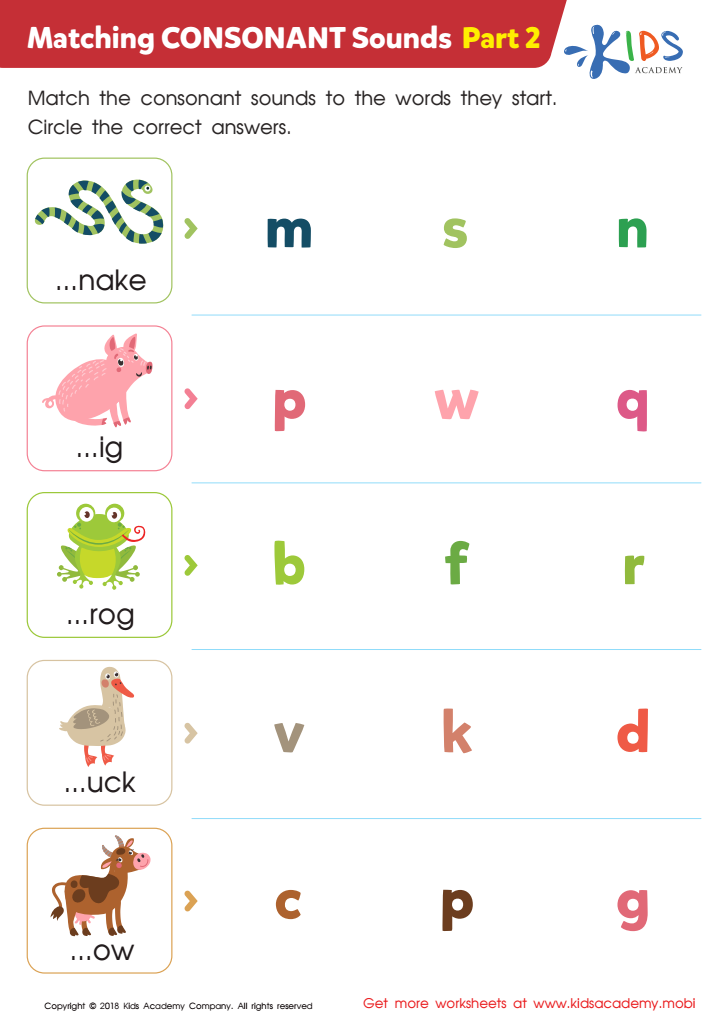Phonics recognition Kindergarten Beginning Consonants Worksheets
3 filtered results
-
From - To
Discover engaging "Phonics Recognition Kindergarten Beginning Consonants Worksheets" designed to kickstart your child's reading journey. These printable activities focus on helping young learners recognize and identify the initial consonant sounds, laying a strong foundation for phonemic awareness. Bright, fun graphics and interactive tasks make learning enjoyable and effective, promoting better retention. Ideal for both classrooms and at-home practice, our worksheets encourage early literacy skills through hands-on practice. With these resources, you'll make phonics fun while building your child's confidence in identifying sounds, setting the stage for future reading success. Explore now to spark a love for learning!


Words with Sound N Reading Worksheet


Matching Consonant Sounds: Part 3 Worksheet


Matching Consonant Sounds: Part 2 Worksheet
Parents and teachers should prioritize phonics recognition, especially the understanding of beginning consonants, in kindergarten because it sets a strong foundation for future reading and literacy skills. Phonics involves connecting sounds with letters, an essential skill for decoding words in reading. When children grasp beginning consonants, they can recognize and differentiate sounds like 'b' in "bat" from 'c' in "cat," which is crucial for word formation.
Improving phonics recognition also significantly boosts a child's confidence and enthusiasm for learning. As children successfully decode words, they develop a love for reading early, which can lead to better academic performance across subjects. It encourages a smoother transition from recognizing single sounds to blending and creating whole words, enhancing fluency and comprehension.
Additionally, early literacy skills foster communication abilities, providing children with the tools to express themselves clearly. By investing time in teaching and reinforcing phonics and beginning consonants, parents and teachers not only create skilled readers but also support cognitive development benefits, including better memory, problem-solving skills, and increased attention span.
Ultimately, strong phonics skills in kindergarten serve as a cornerstone for lifelong learning and academic success, making it a critical focus in early childhood education.

 Assign to My Students
Assign to My Students














